The SYMBIOTIC research programme addresses the need for a more effective response to the clustering of health problems in our populations.
About SYMBIOTIC
A 'syndemic' is the aggregation of two or more diseases in a person or a population that interact and amplify disease outcomes. For example the relationship between infectious diseases (IDs) and long-term conditions (LTCs) works in both directions and are impacted by inequity, with profound consequences for whānau health.
The Syndemic Management of the Biology and Treatment of Infections and Chronic conditions (SYMBIOTIC) programme addresses this key challenge for health and wellbeing.
SYMBIOTIC tohu (logo) and whakamarama (explanation)
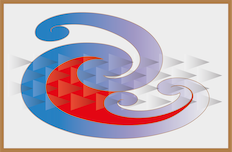 A logo has been developed for SYMBIOTIC by John Kingi, Kōkiri Marae Hauora, as part of their aspirations for this research project. The logo's whakamarama (explanation) provided by John is:
A logo has been developed for SYMBIOTIC by John Kingi, Kōkiri Marae Hauora, as part of their aspirations for this research project. The logo's whakamarama (explanation) provided by John is:
The blue continuous kōwhaiwhai (scroll pattern) represents the multiple services working together to support the delivery of whānau-centred care (researchers, primary health, Māori health providers).
Whero (red) / toto (blood) represents whakapapa, improving the health of people. People are the driving force and focus of change. Services assist people to change, positively or negatively.
The brown border represents Ngāi Māori!
The niho (teeth) represent the continuation of whakapapa, resilience and that tikanga / kawa are our strength and at the heart of wellness. The niho also show the connection of the multiple health and wellness issues that Māori suffer from on a daily basis (the SYMBIOTIC kaupapa) thus the design appears shadowed and overlays the main design. It is a reality that our people know all too well.
Our people
Professor Michael Baker (Principal Investigator) and Research Associate Professor Amanda Kvalsvig (Lead Researcher) lead the SYMBIOTIC programme at the Department of Public Health, University of Otago, Wellington.
We are working in partnership with communities, practitioners, Māori health providers, and policymakers. Our longstanding research partnership with Kōkiri Marae is integral to the Programme.
Professor Michael Baker
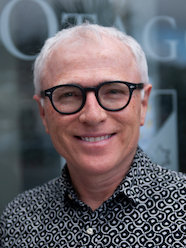
Email michael.baker@otago.ac.nz
Research Associate Professor Amanda Kvalsvig
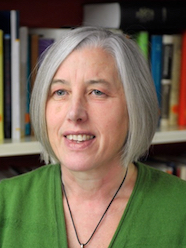
Email amanda.kvalsvig@otago.ac.nz
Dr Virginia Signal
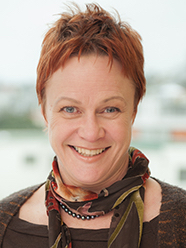
Email virginia.signal@otago.ac.nz
Julie Cooper
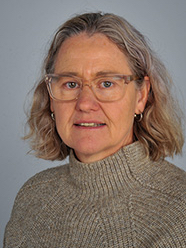
Email julie.cooper@otago.ac.nz
SYMBIOTIC research programme
SYMBIOTIC is a large programme of research that will use a syndemic approach to identify and quantify the linked effects of IDs , LTCs , and structural inequalities. The Programme has deliberately focused on preventable health issues that impose a high burden on Māori whānau.
We will use New Zealand's unique health data and indigenous knowledge to generate new evidence of national and international importance, and anticipate that the findings will be able to be applied to a broad range of syndemics, not only those studied in the SYMBIOTIC programme.
View Hon Dr Ayesha Verrall's message officially launching the SYMBIOTIC programme and more about the launch event at Kokiri marae.
Programme framework
The SYMBIOTIC programme hypothesises a range of interrelationships between IDs and LTCs , with three major areas of interest:
- Autoimmunity, inflammation, and carcinogenesis
- Effects of antibiotic treatment
- Immune suppression
The programme has four major components:
- Whānau ora approach to syndemics (potential intervention points include prevention, vaccination, screening and treatment, antibiotic stewardship and management of LTCs )
- Quantifying the links between infectious diseases and long-term conditions
- Managing the infectious disease risk of multimorbidity
- Endgame strategies for infectious diseases causing long-term conditions
Programme approach
- Codesign a community partnership approach to explore how syndemics research can be applied within a whānau ora framework and to identify policy and primary care solutions to syndemics that are culturally located, whānau-centred and equity-promoting.
- Analyse linked data to identify and quantify syndemic pathways to both use and further develop NZ's rich data environment. We will examine potential novel associations of early life exposures with LTCs (e.g. antibiotic prescribing using the IDI ) and quantify the amplifying effect of inequities and clustered conditions.
- Collect and synthesise evidence based on interviews and testing of clinical samples from members of the community to guide design of a national screening programme for H. pylori infection and other activities to reduce the burden of stomach cancer among whānau Māori.
SYMBIOTIC aims and projects
Named researchers are from the University of Otago, Wellington, unless otherwise indicated.
Aim 1: To integrate syndemics research into a whānau ora framework
Reducing the effects of poverty and discrimination
To identify whānau-level factors that enable or block syndemics, and determine how a whānau-centred approach to syndemics of IDs and LTCs can reduce the effects of poverty and discrimination.
Co-lead: Cheryl Davies, (also Kōkiri Marae) and Anaru Waa
Team: Carmen Timu-Parata, Takari Mai Collective, and Te Awakairangi Health Network
Aligning primary care services with Whānau Ora
To identify how primary care services could be more strongly orientated towards Whānau Ora to reduce the syndemic effects of IDs and LTCs and improve access to care.
Co-lead: Cheryl Davies, (also Kōkiri Marae) and Anaru Waa
Team: Carmen Timu-Parata, Takari Mai Collective, and Te Awakairangi Health Network
Estimating impacts to aid prioritisation
To produce integrated estimates of the impact of IDs and associated LTCs on hospitalisations, mortality, health inequities, and health care costs in NZ, to guide prioritisation decisions.
Lead: Michael Baker
Aim 2: To quantify the links between IDs and LTCs with a high public health burden
Assessing associations between gastroenteritis and subsequent illness
To assess the association between acute gastroenteritis caused by a range of common pathogens and subsequent illness, notably Guillain-Barré syndrome (GBS), inflammatory bowel disease (IBD), hospitalisations, and mortality in the subsequent year.
Lead: Andrew Day
Team: Jonathan Kennedy, Constanza Jackson
Antibiotic use and childhood conditions
To assess the association between antibiotic use and subsequent development of three chronic childhood conditions: type 1 diabetes mellitus (T1D); IBD (inflammatory bowel disease); and attention deficit hyperactivity disorder (ADHD) and explore implications for clinical practice.
Lead: Jeroen Douwes (Massey University)
Team: Andrea 't Mannetje (Massey University), Marine Corbin (Massey University), Peter McIntyre
Aim 3: To quantify and manage the infectious disease risk of multi-morbidity
Quantifying public health benefits
To quantify the public health benefits of an integrated approach to management of multi-morbidity and serious IDs including influenza, using whānau ora principles
Lead: Amanda Kvalsvig
Team: James Stanley, Jason Gurney, Celia Hume, Jonathan Kennedy, Peter McIntyre
Aim 4: To inform endgames to eliminate IDs that cause serious LTCs
National screening programme proposal
To measure current prevalence of and inform the 'endgame' for H. pylori - a proposed national screening programme - to eliminate this infection, and also to produce evidence to inform other interventions to reduce the impact of stomach cancer in NZ.
H.pylori in Aotearoa New Zealand Study
Co-leads: James Stanley and Andrea Teng
Team: Virginia Signal, Kirsty Danielson,Stephen Inns, Jason Gurney
University of Otago research partners
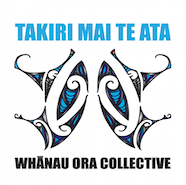 Takiri Mai Te Ata Whanau Ora Collective
Takiri Mai Te Ata Whanau Ora Collective
Cheryl Davies is a Māori researcher with extensive leadership experience in community health research and translation. She is the manager of Tu Kotahi Māori Asthma and Research Trust
Email cheryl@kokiri-hauora.org.nz
Web Takiri Mai Te Ata Whanau Ora Collective website
Centre for Public Health Research, Massey University
 We are working with Professor Jeroen Douwes, the Director of the Centre for Public Health Research at Massey University, Wellington. Professor Douwes is an epidemiologist with a strong track record in public health research, particularly involving chronic conditions in children including studies using IDI .
We are working with Professor Jeroen Douwes, the Director of the Centre for Public Health Research at Massey University, Wellington. Professor Douwes is an epidemiologist with a strong track record in public health research, particularly involving chronic conditions in children including studies using IDI .
Email j.douwes@massey.ac.nz
Dr Marine Corbin is a biostatistician at the Massey University Centre for Public Health Research. She has considerable relevant experience using the IDI for public health research.
Email M.Corbin@massey.ac.nz
Web Centre for Public Health Research website
Funding
The programme is funded by the Health Research Council (HRC 20/631 PI: Baker)
SYMBIOTIC launch hui at Kokiri marae
Recording of Hon Dr Ayesha Verrall's message officially opening the SYMBIOTIC programme
Launch of new public health research programme led by Professor Michael Baker (media release)
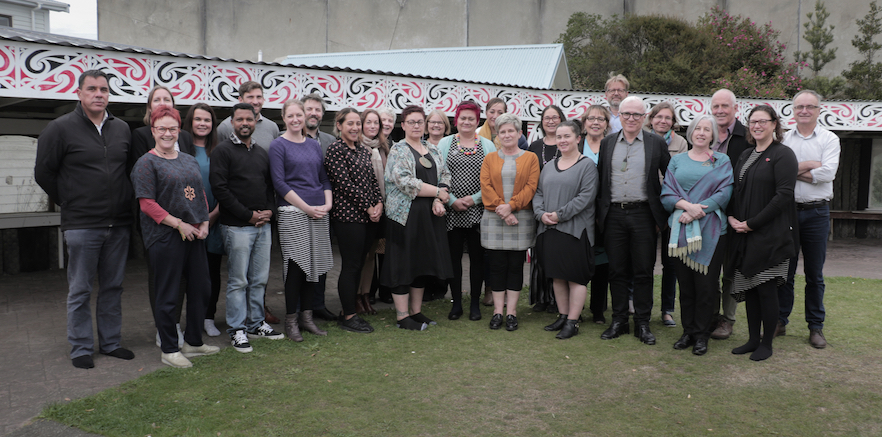
SYMBIOTIC Launch Hui with the team of researchers at Kokiri marae.
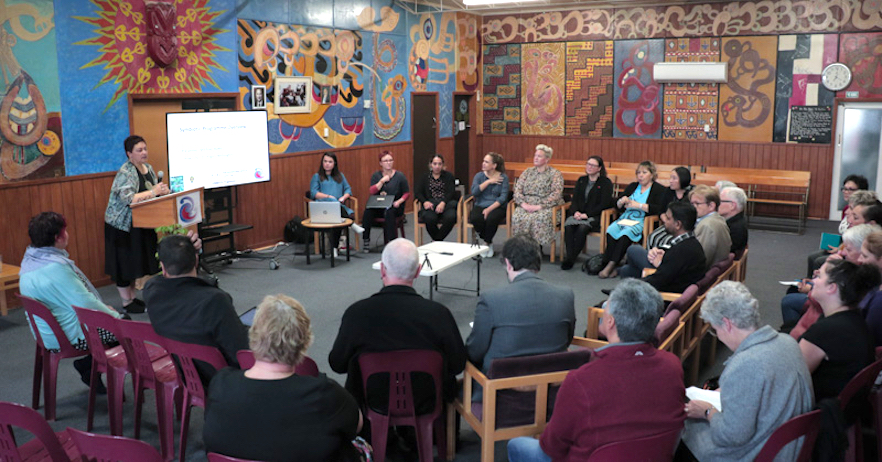
SYMBIOTIC Launch Hui speaker Cheryl Davies.
